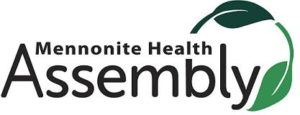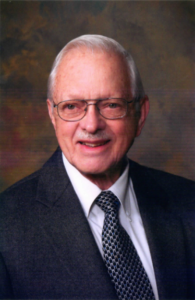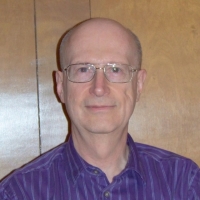Mennonite Health Journal
Articles on the intersection of faith and health
Report from Mennonite Health Assembly
Paul D. Leichty
from Mennonite Health Journal, Vol. 16, No. 2 – May 2014
Mennonite Healthcare Fellowship (MHF) often gets confused with other entities that have “Mennonite” and “Health” in their names. As Executive Director of MHF, I often explain it like this:
 Mennonite Health Services (MHS) has created an Alliance of organizations that generally serve their local communities with health-related ministries but seek to retain the values and connections with the larger church.
Mennonite Health Services (MHS) has created an Alliance of organizations that generally serve their local communities with health-related ministries but seek to retain the values and connections with the larger church.
 Mennonite Healthcare Fellowship (MHF) is an organization of individuals seeking to integrate their faith and professional life wherever they work and serve.
Mennonite Healthcare Fellowship (MHF) is an organization of individuals seeking to integrate their faith and professional life wherever they work and serve.
 Once a year, these organizations come together in an event called Mennonite Health Assembly (MHA). This year, MHA was held on March 6-8, 2014 in Kansas City, Missouri. MHS takes the lead in planning MHA. However, MHF also has representatives on the MHA Planning Committee as does Mennonite Chaplains Association (MCA), whose report can be found elsewhere in this issue. Everence provides financial support for MHA.
Once a year, these organizations come together in an event called Mennonite Health Assembly (MHA). This year, MHA was held on March 6-8, 2014 in Kansas City, Missouri. MHS takes the lead in planning MHA. However, MHF also has representatives on the MHA Planning Committee as does Mennonite Chaplains Association (MCA), whose report can be found elsewhere in this issue. Everence provides financial support for MHA.
While Mennonite Health Assembly tends to shape its program around the leadership and governance needs of the member institutions of MHS Alliance, there is always something useful for individual healthcare professionals as well. This year’s theme of “Pioneers, Partners, and Pathways” provided some particularly interesting content.
Myron McCoy, President of the nearby Saint Paul School of Theology brought the opening keynote address against the backdrop of the story found in Genesis 12 of Abram as a pioneer. McCoy proceeded to discuss how his institution stepped out into the unknown and built new partnerships in order to better meet the leadership needs of its church constituency.
Friday’s luncheon presentation by Teresa Cutts was of particular interest to healthcare practitioners, particularly in light of changing paradigms being accelerated by the implementation of the Affordable Care Act. She talked extensively about the Congregational Health Network model implemented in Memphis in which hospital, churches, and the community as a whole entered into partnerships which resulted in building long-term relationships with community residents to serve their healthcare needs in a holistic way. She stressed partnerships built on trust and covenant and recognizing the need to operate in two modes of language: both “hospitalese” as well as the faith language of the persons served. As people of faith she asked the audience to consider the question, “How can we partner to create the Beloved Community of Health?” She also made reference to a larger study of this type of model outlined in a “Health Systems Learning Group Monograph” available online.
The final plenary presentation was given by Rick Stiffney, CEO of Mennonite Health Services, who spoke about pathways to the future. He used the imagery of the Apostle Paul on the road to Damascus as his conversion experience led on a pathway to a transformed reality, going from being blinded to having the scales fell off of his eyes. Stiffney referred to several ways of considering the metaphor of “pathway” in the work of guiding healthcare-related institutions into the future. Pathways as strategy helps to consider which way we will forge into the future. However, pathways as labyrinths invite reflection and deeper search for meaning. Pathways are thus seen as an invitation to spiritual reflection as we pay attention what God is up to in our journey.
Workshops were also an integral part of Mennonite Health Assembly. One of particular interest to individual practitioners was by Jeanette Nisly, a nurse currently living in Oregon, entitled “Health Promoters as Practitioners: Lessons from Guatemala.” Nisly shared from her Masters program work at Eastern Mennonite University in which she studied the results coming from a program in which she herself participated. In this model, where there were only eight physicians in a large but remote region of Guatemala, an organization related to the Catholic Church was able to train lay “health promoters” whose work had a demonstrably positive effect on the health of the people in the villages it served at only a fraction of the cost of traditional systems.
 A new feature at MHA this year was called “Open Space” which allowed Assembly participants to talk together about topics of their own choosing. MHF took advantage of this time to invite Dr. Joseph Duerksen to share his reflections on 100 years of Mennonite health work in India. Duerksen himself served in India for many years and is still involved in the leadership of the Emmanuel Hospital Association, which directs the work of many small Christian hospitals in the country. His talk and slide presentation was a fascinating blend of history, culture, and the practice of medicine in India.
A new feature at MHA this year was called “Open Space” which allowed Assembly participants to talk together about topics of their own choosing. MHF took advantage of this time to invite Dr. Joseph Duerksen to share his reflections on 100 years of Mennonite health work in India. Duerksen himself served in India for many years and is still involved in the leadership of the Emmanuel Hospital Association, which directs the work of many small Christian hospitals in the country. His talk and slide presentation was a fascinating blend of history, culture, and the practice of medicine in India.
Next year, Mennonite Health Assembly will be held March 5-7 in Cincinnati. MHF wishes to express its appreciation to Don Tyson of Harrisonburg, Virginia for his work on the MHA Planning Committee, first on behalf of Mennonite Nurses Association (MNA) and then for MHF. Current MHF members on the MHA Planning Committee are Wanda Thuma-McDermond and Carol Spicher.
About the author
 Paul D. Leichty, M.Div. is Executive Director Emeritus, having served as the first Executive Director of Mennonite Healthcare Fellowship (MHF) from Sept. 2011 through May 2020. Paul has served as a pastor, church musician, computer support person, disabilities advocate, and administrator/organizer of a number of church-related ministries. Paul also served as Executive Director of Congregational Accessibility Network which was transformed in 2022-23 to Disability Ministry Network. He is a member of Agape Fellowship of the Mennonite Church in Williamsport, Pennsylvania where he lives with his wife, Twila Charles Leichty.
Paul D. Leichty, M.Div. is Executive Director Emeritus, having served as the first Executive Director of Mennonite Healthcare Fellowship (MHF) from Sept. 2011 through May 2020. Paul has served as a pastor, church musician, computer support person, disabilities advocate, and administrator/organizer of a number of church-related ministries. Paul also served as Executive Director of Congregational Accessibility Network which was transformed in 2022-23 to Disability Ministry Network. He is a member of Agape Fellowship of the Mennonite Church in Williamsport, Pennsylvania where he lives with his wife, Twila Charles Leichty.
